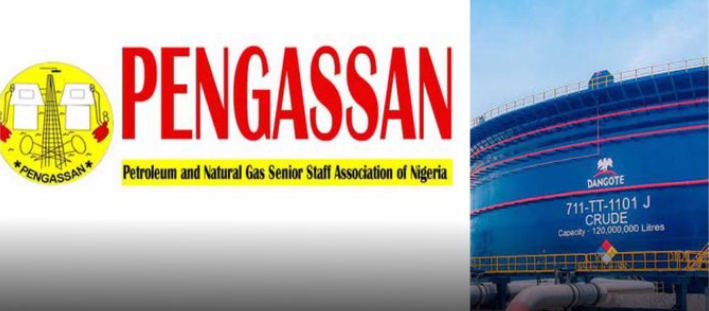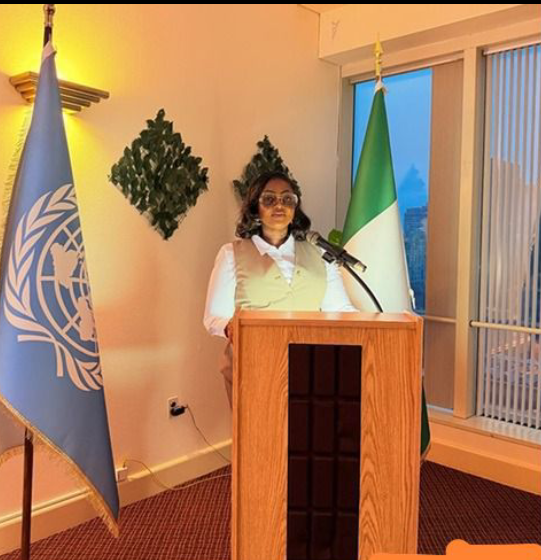
PENGASSAN President Accuses Aliko Dangote of Sabotaging Nigeria’s Economy, Says Billionaire Rose Through Government Favors

Nigeria’s oil and gas sector was rattled on Sunday after the President of the Petroleum and Natural Gas Senior Staff Association of Nigeria (PENGASSAN), Festus Osifo, launched a blistering attack on Africa’s richest man, Aliko Dangote, accusing him and his allies of deliberately sabotaging Nigeria’s economy while enriching themselves at the expense of the masses. In a statement that has already set off a storm of reactions across the country, Osifo said Dangote owes his business empire to the monopoly privileges granted to him by successive Nigerian governments, particularly in the importation of basic commodities like flour, sugar, and salt. His comments came at a time of heightened tensions between PENGASSAN and the management of the Dangote Refinery over what the union describes as unfair practices, questionable agreements with the government, and attempts to undermine the role of local oil workers and companies in Nigeria’s struggling petroleum industry.
Speaking with unusual frankness, Osifo declared, “Aliko Dangote and his allies are the ones sabotaging Nigeria’s economy. Dangote became who he is today because of Nigeria, which gave him the sole licence to import flour, sugar, and salt.” According to him, the billionaire’s rise to power and influence was not the result of pure entrepreneurial ingenuity but the product of systemic favoritism, backroom deals, and state-backed monopolies that crushed competitors and left ordinary Nigerians with few choices. His words strike at the very core of the longstanding debate about whether Dangote’s dominance of critical sectors of the Nigerian economy has been a blessing or a curse for the nation.
For years, Dangote has been celebrated both within and outside Africa as the continent’s preeminent business mogul, with a fortune estimated at over $10 billion and an empire stretching across cement, sugar, salt, fertilizer, and now oil refining. But critics have long accused him of thriving on government concessions and policies that lock out competitors, allowing him to dictate prices and entrench himself as an untouchable giant. The PENGASSAN president’s comments represent perhaps the boldest and most direct attack yet on the tycoon, coming not from a political opponent or rival businessman but from one of the country’s most powerful labor unions.
The timing of Osifo’s remarks is significant. Nigeria is currently facing crippling economic challenges—spiraling inflation, a collapsing currency, skyrocketing fuel costs, and widespread poverty—while the much-hyped Dangote Refinery, commissioned with fanfare and described as the game-changer that would end Nigeria’s dependence on imported fuel, has yet to deliver the promised relief. Instead, the refinery has been caught in controversies, ranging from disagreements with oil marketers to regulatory tussles, and allegations that its operations could further entrench monopoly in the downstream sector. PENGASSAN has been particularly vocal in accusing the government of granting Dangote undue advantages, including exclusive rights and special waivers that effectively sideline other players in the oil sector.
Osifo insisted that Nigeria’s current economic struggles cannot be divorced from the stranglehold of powerful monopolies created by the political elite, with Dangote standing at the very center of it. He argued that for decades, the government has sacrificed competition and fairness in favor of building a business empire for a select few, leaving the majority of Nigerians to suffer the consequences. “What we are experiencing today is not by accident,” he said. “It is the outcome of deliberate policies designed to empower one man and his circle of allies, while disempowering an entire nation.” His words are expected to resonate with millions of Nigerians who have often complained about skyrocketing prices of commodities, cement, and other essentials, all of which fall under Dangote’s vast business portfolio.
Almost immediately after Osifo’s comments went public, social media erupted with heated debates. Some Nigerians praised him for saying what many have whispered for years but never dared to say openly. Others, however, defended Dangote, pointing out that his investments have created thousands of jobs and placed Nigeria on the global map as a hub for industrial capacity. Still, the anger among workers, particularly in the oil and gas industry, remains palpable, with PENGASSAN hinting at possible industrial actions if the government continues to “hand the nation’s destiny to one man.”
Observers say Osifo’s outburst may also be a signal of growing frustration among labor unions, who feel increasingly marginalized in key economic decisions that directly affect their members. By calling out Dangote by name, PENGASSAN has elevated the issue from quiet grumblings to a national conversation that could have far-reaching implications for both the government and the billionaire’s conglomerate. Political analysts note that if left unresolved, the standoff could spiral into protests, strikes, and further disruptions in a country already battling multiple crises.
Interestingly, this is not the first time Dangote has been accused of monopolistic practices. Over the years, smaller business owners have alleged that his companies have used political connections and financial muscle to push them out of business. In sectors like cement and sugar, local competitors often struggle to survive under policies that critics say are tailored to favor Dangote Industries. What makes Osifo’s allegations different, however, is the direct framing of Dangote’s success as an act of “sabotage” against Nigeria’s economy, a term that carries both moral and political weight.
So far, Dangote has not personally responded to the accusations, and his company has remained silent. But industry insiders expect a formal statement soon, given the gravity of the claims and the potential damage to the company’s reputation. For years, Dangote has carefully cultivated an image of a philanthropist and nation-builder, donating generously to health, education, and disaster relief efforts while presenting himself as a patriotic businessman investing billions into Nigeria’s future. Osifo’s remarks, however, paint a starkly different picture of a man who built his empire by bleeding the very country he claims to serve.
The government, too, finds itself in a difficult position. On one hand, officials have openly celebrated the Dangote Refinery as the crown jewel of Nigeria’s industrial revolution. On the other hand, labor unions, opposition figures, and civil society are now mounting pressure on the administration to address the growing concerns over monopoly and favoritism. How the government navigates this conflict may determine not only the fate of the refinery but also the broader trust Nigerians place in the country’s economic policies.
For now, the spotlight is firmly on Dangote, the government, and the unions. Osifo’s accusations have thrown open a debate that is likely to dominate national discourse in the weeks ahead. Was Dangote’s rise truly the result of vision, hard work, and risk-taking, or was it the product of systemic favoritism that robbed Nigeria of genuine competition and innovation? Is he the nation’s industrial savior or its greatest economic saboteur? Nigerians, battered by hardship and weary of broken promises, will be watching closely as this storm unfolds. One thing is certain—the conversation about Aliko Dangote’s role in Nigeria’s economy will never be the same again.

